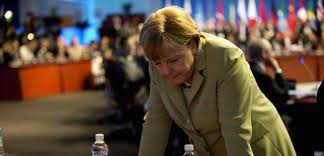 Some weeks ago I heard Arianna Huffington deliver a talk, in Austin, on sleep deprivation and the terrible decisions that it leads to. This made me recall that all the awful decisions of our European leaders (and there were so many of them) were reached at around 4.00am. I mentioned that to Arianna and she invited me to write a post for Huffington Post. Here it is… Click here for the Huffington Post site or…
Some weeks ago I heard Arianna Huffington deliver a talk, in Austin, on sleep deprivation and the terrible decisions that it leads to. This made me recall that all the awful decisions of our European leaders (and there were so many of them) were reached at around 4.00am. I mentioned that to Arianna and she invited me to write a post for Huffington Post. Here it is… Click here for the Huffington Post site or…
At the height of her political dominance, Mrs. Margaret Thatcher famously portrayed sleep as another form of inefficiency. Given that her political ideology turned on combating inefficiency with the same venom that the Catholic Church had previously reserved for mortal sin, her remark that “sleep is for wimps” possessed the hallmarks of a major political and cultural intervention. Indeed, it did much to establish the ‘hamsters-on-a-treadmill’ environment in government, in the City of London, in the corporations; everywhere men and women strove to prove that they were part of her Brave New Economy and not, to coin another of Mrs. Thatcher’s expressions, “moaning minnies.” Thus, from eager interns to the heads of government departments and the CEOs, the race to prove one’s capacity for burning the midnight oil was on. Quantity came to trump quality on every turn. It would not stretch credulity too far to say that the vast pyramids of bad quality assets, which crashed and burned in 2008, had their origins, at least in some small part, in this cultural shift.
Mrs. Thatcher left her mark not only as a prodigious insomniac but also as a committed Eurosceptic. It is, in this sense, a delicious irony that her attitude to sleep seems to have been adopted and pressed into service by the European Union’s leaders during their inane handling of the inevitable Euro Crisis. Once Greece ignited the haystack (with its early 2010 insolvency), a cascading financial and economic crisis engulfed Europe like a vicious bushfire, scorching one proud nation after the other. In a bid to stem it, Europe’s great and good were forced to convene more than thirty emergency summits. These summits will undoubtedly go down in history as a comedy of errors. Indeed, for those of us who have been observing our leaders’ decision making closely, it feels a lot like watching Othello – wondering how our leaders can be so deluded. One explanation, that is intimately linked to Europe’s political economy, has to do with the time of day when they finalized their decisions: invariably in the early hours of the morning, between 4am and 5am.
Deadline effects are important to all of us. Alas, European leaders seem to have neglected consciously to set time limits for their negotiations. Instead, they allowed deliberations to last for days and nights until a de facto deadline presented itself in the form of the physical exhaustion that usually hits just before sunrise. At that point, in a fog of fatigue, desperate minds settled on the most immediately available position. Would Europe be a better place today had sleeplessness had not been a major determining factor of our leaders’ accords? While the root causes of Europe’s troubles are deep, some of Europe’s shenanigans might have been avoided.
If “sleep is for wimps,” as Mrs. Thatcher said, and a form of inefficiency, Europe should today be the land of efficiency and heroic leadership. It is, of course, neither. Powerful Europeans get less sleep than ever, as the crisis continues to fill their mind with intense worry, while a multitude of Europeans are kept awake at night fearing for their jobs, wondering what they must do to get one, agonizing on how they will succeed in putting food on the table after the sun rises.
(*) The thoughts below were inspired by a talk Arianna Huffington gave at the Headliners’ Club, Austin TX in April 2014.














